IBH Board of Directors
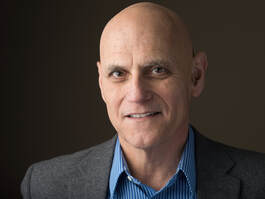
Steven C. Hayes, Ph.D. is the current President of IBH. A clinical psychologist and basic researcher, he is the author of 47 books and over 675 scientific articles. His career has focused on an analysis of the nature of human language and cognition and the application of this to the understanding and alleviation of human suffering. He is the developer of Relational Frame Theory, an account of human higher cognition, and has guided its extension to Acceptance and Commitment Therapy or Training (ACT in either case), a popular evidence-based form of psychotherapy that uses mindfulness, acceptance, and values-based methods. He is working to develop a process-based approach to evidence-based intervention. Dr. Hayes has been President of the Association for Behavioral and Cognitive Therapies, and of the Association for Contextual Behavioral Science, among other associations. He was the first Secretary-Treasurer of the Association for Psychological Science, which he helped form, and has served a 5-year term on the National Advisory Council for Drug Abuse in the National Institutes of Health. Google Scholar data ranks him among the top 950 most cited living scholars in all areas of study (http://www.webometrics.info/en/node/58) and Research.com ranks him as the 63rd highest impact psychologist worldwide. Dr. Hayes is a Fellow of the American Association for the Advancement of Science, in addition to several other scientific societies. His work has been recognized by several awards including the Lifetime Achievement Award from the Association for Behavioral and Cognitive Therapy.

Rochelle I. Frank, PhD, is the secretary for IBH. She is a clinical psychologist in Oakland, CA with over 25 years of clinical and academic experience. She received her doctorate in clinical psychology from Syracuse University and completed her training at Yale Psychiatric Institute. Dr. Frank specializes in transdiagnostic evidence-based treatment of complex and co-occurring mood, anxiety, and trauma-related problems in adults and adolescents, and also treats high-conflict couples and families. She has received post-doctoral intensive training in DBT, CBT, ACT, and other evidence-based treatments, provides clinical consultation to other therapists, and has given educational workshops to both professional and lay audiences. Dr. Frank is an assistant clinical professor of psychology at the University of California, Berkeley, and also holds faculty appointments at The Wright Institute, and the University of California San Francisco School of Medicine. She is co-author of The Transdiagnostic Road Map to Case Formulation and Treatment Planning: Practical Guidance for Clinical Decision Making (Frank & Davidson, 2014; New Harbinger), and a contributing author to S. G. Hofmann & S. C. Hayes (Eds.), Beyond the DSM (in preparation, New Harbinger). She is a past-president of the Alameda County Psychological Association, and currently is a reviewer for the American Psychological Association and the Anxiety and Depression Association of America.
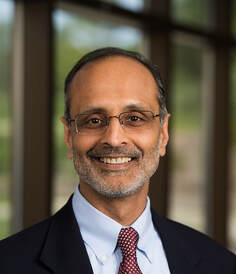
Paresh Patel, MD, is the Treasurer for IBH. Dr. Paresh Patel is a child and adolescent psychiatrist with a background in molecular neurobiology and a longstanding passion for digital technologies that crystallized into a leadership role in clinical and research informatics at Michigan Medicine. He is the Ambulatory Care Clinical Chief and Director of Health Information Technology for the Department of Psychiatry and Associate Chief Medical Information Officer in the Office of Research at Michigan Medicine (University of Michigan Health System). He is an Epic certified Physician Builder Advanced with certifications in Analytics, Healthy Planet and Clarity. Dr. Patel’s primary interests are better integrating measurement-based care into clinical practice and leveraging emerging digital tools into clinical and clinical research workflows to improve quality and effectiveness.
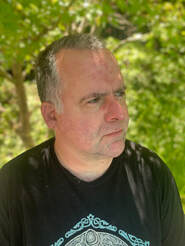
Spencer Smith is the Executive Director of the Institute for Better Health. He is also the former Executive Director for Praxis Continuing Education and Training; cofounder of Psychflex, Incorporated; and the author/contributor of many books in the fields of health, nutrition, and psychology, most notably Get out of Your Mind and Into Your Life which he coauthored with Steven C. Hayes, PhD. Spencer has worked for more than twenty years in many different areas related to the health and psychology fields including content creation, information distribution marketing, business development, continuing education, and ecommerce platform growth and deployment. In his spare time Spencer likes to hike, garden, and play games with his family. He is also a lifelong Aikido practitioner with a 6th degree black belt in the art.

Stefan G. Hofmann, Ph.D. is the Alexander von Humboldt Professor for Translational Clinical Psychology and the Department of Clinical Psychology, Philipps University Marburg, Germany, and Professor of Clinical Professor of Psychology at the Department of Psychological and Brain Sciences at Boston University. He was president of the Association for Behavioral and Cognitive Therapies and the International Association for Cognitive Psychotherapy. He is editor-in-chief of Cognitive Therapy and Research and has published more than 400 peer-reviewed journal articles and 20 books, including an Abnormal Psychology text book with Cengage, An Introduction of Modern CBT (Wiley-Blackwell), Emotion in Therapy: From Science to Practice (by Guilford Press), and the Anxiety Skills Workbook (by New Harbinger). He has been included in list of a Highly Cited Researcher by Clarivate and Thomson Reuters since 2015, among many other awards, including the Aaron T. Beck Award for Significant and Enduring Contributions to the Field of Cognitive Therapy by the Academy of Cognitive Therapy. He was an advisor to the DSM-5 Development Process and was a member of the DSM-5 Anxiety Disorder Sub-Work Group and member of the Cross-Cutting Culture Review Group of the DSM-5-TR. His research focuses on the mechanism of treatment change, translating discoveries from neuroscience into clinical applications, emotion regulation, and cultural expressions of psychopathology. He is the co-developer of Process-based Therapy, a transtheoretial model of psychotherapy based in evolutionary science using a complex network approach to target the fundamental processes of treatment change with simple core therapeutic principles. For more information, see: http://www.bostonanxiety.org/
Scientific Advisory Board
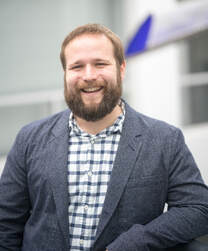
Michael Levin, Ph.D. is a professor in the Department of Psychology at Utah State University, a licensed psychologist in the state of Utah, and the Chair of the Scientific Advisory Board. His research focuses on the development, evaluation, and implementation of digital technologies to address mental health concerns for a range of populations. Dr. Levin uses a process-based approach to examine the components and processes through which treatments improve mental health, particularly those based in Acceptance and Commitment Therapy (ACT). He has conducted over 30 clinical trials evaluating online ACT interventions, which has been supported by funding sources including the National Center for Complementary and Integrative Health, National Institute of Mental Health, and International OCD Foundation. Overall, Dr. Levin has published over 150 peer-reviewed articles and chapters as well as 4 books, including the upcoming Oxford Handbook of Acceptance and Commitment Therapy. He is also the editor-in-chief for the Journal of Contextual Behavioral Science, which is one of the leading peer-reviewed journals for process-based therapy research.
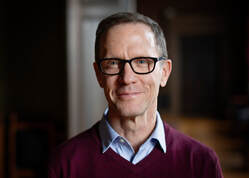
Lance M McCracken is Professor and Head of Division in Clinical Psychology, Psychology Department, Uppsala University, Sweden, since 2018. He completed his PhD at West Virginia University and a post doctoral fellowship at Johns Hopkins. He was employed at The University of Chicago, in Psychiatry and in Anesthesia and Critical Care from 1994 to 2000. He was Clinical Lead at the Bath Center for Pain Services in the UK, beginning in 2000, and left that post to take up a post as Professor of Behavioral Medicine at King’s College London in 2011 until 2018. He now has many years of clinical and research experience mainly in psychological and interdisciplinary approaches to chronic pain and other long-term health conditions.
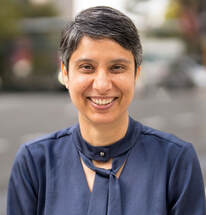
Dr. Baljinder K. Sahdra is a researcher at the Institute for Positive Psychology and Education, Australian Catholic University, North Sydney. She has published in top-tier journals in social, clinical, developmental, and educational psychology as well as assessment and research methods. Her publications employ a variety of methodological approaches, including machine learning, complex network analysis, structural equation modelling, multilevel modelling, mixture modelling, computational qualitative analysis, meta-analysis, and Bayesian statistics. Her recent research focuses on advancing idionomic methods that aim to combine insights from idiographic and nomothetic approaches.

Professor Gerhard Andersson, Ph.D. is full professor of Clinical Psychology at Linköping University in the Department of Behavioural Sciences and Learning, and the Department of Biomedical and Clinical Sciences. He has a PhD in psychology and one in medicine and is also licensed psychotherapist. During his whole career Andersson has worked part-time with patients, mainly in audiology. He has a part-time position as clinical psychologist in the Hearing Clinic, Linköping University Hospital, as a member of the Tinnitus team where he works with ACT.
He is also the editor in chief for the journal Internet Interventions. He is mostly known for his work on internet-delivered psychological treatments and has has published over 800 research papers, 70 chapters and 20 books. He has been involved in over 100 controlled clinical trials for a range of problems and conditions. Andersson has been on the list of highly cited researchers between 2016 to 2022 and he is the most cited Swedish psychologist ever Research.com. For more info see www.gerhardandersson.se.
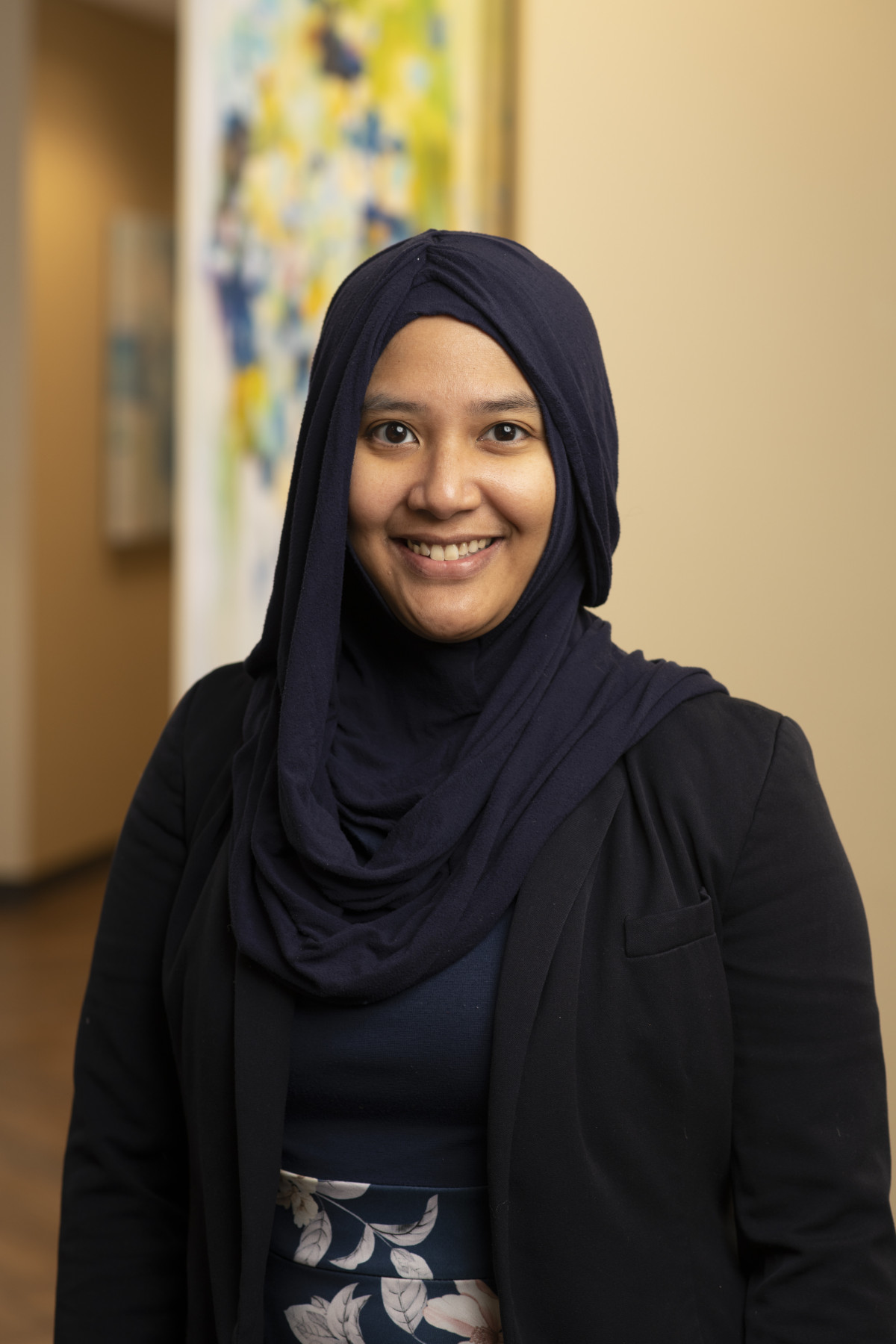
Ajeng Puspitasari, PhD, LP, ABPP, is a board-certified psychologist through the American Board of Professional Psychology (ABPP) with a specialty in Behavioral and Cognitive Psychotherapy. She is executive director of clinical services for Rogers Behavioral Health's nine locations in Wisconsin, Minnesota, Illinois, and Colorado.
Dr. Puspitasari received her Bachelor of Science in sociology, anthropology, and human services at the University of Minnesota-Morris. She then earned her Master of Science in clinical psychology at the University of Wisconsin-Milwaukee, where she also earned her PhD in clinical psychology. Dr. Puspitasari completed her pre-doctoral clinical internship at Alpert Medical School-Brown University in Providence, Rhode Island, and her post-doctoral fellowship in implementation science at Indiana University in Bloomington, Indiana.
Prior to joining Rogers, Dr. Puspitasari was an assistant professor of psychology at the Mayo Clinic College of Medicine and Science in Rochester, Minnesota where she was also senior associate consultant in the Department of Psychiatry and Psychology.
As a scientist practitioner, Dr. Puspitasari’s research focuses on the dissemination and implementation of evidence-based psychotherapies (EBPs) in diverse behavioral health settings. She co-authored peer-review articles and presented at conferences on the dissemination and implementation of EBPs. She has provided EBPs training, supervision, and consultation for clinicians both in the United States and internationally.
Dr. Puspitasari is the co-president for the Process-Based Therapy Special Interest Group within the Association for Contextual Behavioral Science. She serves as an advisory committee member for the American Psychological Association Measurement-Based Care and Mental and Behavioral Health Registry. She has previously served as a member of the diversity, equity, and inclusion committees at the University of Wisconsin-Milwaukee, Brown University, and Mayo Clinic.
Research and Development Committee
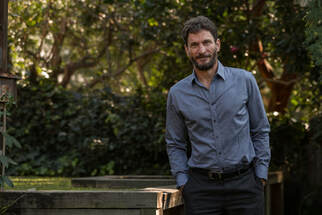
Joseph Ciarrochi, PhD, is a professor at the Institute for Positive Psychology and Education at Australian Catholic University. He has published more than 165 scientific journal articles and many books, including the widely acclaimed Emotional Intelligence in Everyday Life and The Weight Escape. His latest book is What makes you stronger: How to thrive in the face of uncertainty using Acceptance and Commitment Therapy. Ciarrochi has been honored with more than four million dollars in research funding. His work has been discussed on TV and radio, and in magazines and newspaper articles. He is ranked in the top 1% of scientists in the world across all disciplines.
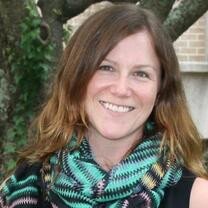
Katie Gates, PhD is an Associate Professor of Quantitative Psychology in the Department of Psychology and Neuroscience at the University of North Carolina at Chapel Hill. She is a member of the Human Neuroimaging Group and affiliated faculty of the UNC Biomedical Research Imaging Center (BRIC). She obtained her Ph.D. in the Department of Human Development and Family Studies (quant focus) at Penn State, a Masters of Forensic Psychology at the City University of New York (John Jay College), and a BS in Psychology from Michigan State University. Katie’s work is motivated by problems in analyzing individual-level data. She develops, evaluates, and disseminates statistical programs that aid researchers in better quantifying behavioral, psychophysiological, and emotional processes across time. Katie co-authored a book titled, Intensive Longitudinal Analysis of Human Processes, among many other articles, chapters, and R packages.
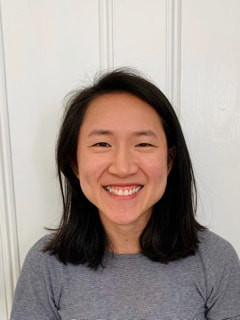
Clarissa Ong, Ph.D., is an Assistant Professor and the Clinic Director in the Department of Psychology at the University of Toledo. Her research focuses on developing, evaluating, and disseminating process-based approaches to therapy for diverse populations, especially as applied to OCD and perfectionism. She has co-authored over 75 journal articles and book chapters as well as two books: The Anxious Perfectionist and ACT in Steps. Her work has been funded by the Association for Contextual Behavioral Science and the International OCD Foundation. Dr. Ong has conducted some of the earliest applications of process-based idionomic research tools to the analysis of clinical interventions and she is editing a special issue of the Journal of Contextual Behavioral Science on that topic.

Diana Hill, PhD is a clinical psychologist and co-author of ACT Daily Journal: Get Unstuck and Live Fully with Acceptance and Commitment Therapy, the ACT Daily Card Deck, and the upcoming book The Self-Compassion Daily Journal (May 2024). A leader in the practical application of Acceptance and Commitment Therapy (ACT), Dr. Hill trains mental health professionals in ACT, hosts the podcast Your Life in Process, blogs for Psychology Today and Mindfil.org and teaches on Insight Timer Meditation. Dr. Hill regularly leads workshops and retreats at InsightLA, Blue Spirit Costa Rica, Mindful Heart Programs, Yoga Soup and PESI Continuing Education. Dr. Hill earned her doctoral degree in Clinical Psychology from the University of Colorado at Boulder, where she researched mindfulness-based interventions for eating disorders in conjunction with Dr. Debra Safer from Stanford University. Dr. Hill practices what she preaches in her daily life as a mom of two, bee guardian, and children’s yoga teacher.

Andrew Gloster, Ph.D. heads the Division of Clinical Psychology and Intervention Science and is Director of Clinical Training for the post-graduate psychotherapy training in Process-based Psychotherapy at the University of Basel. He has published over 125 scientific articles and six books and treatment manuals, and have received over 3 million dollars in research funds. His main research interests include psychotherapy processes, treatment outcome (including treatment non-response), mental health, digital interventions, and methodological innovations in clinical trials. He is president of the Association of Contextual Behavioral Science (ACBS), where he is also a Fellow.
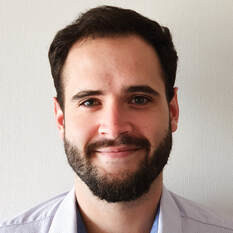
Cristóbal Hernández, PhD, is a clinical psychologist and Assistant Professor at Adolfo Ibáñez University in Chile. There, he also directs the psychotherapy training program and teaches evidence-based psychological practices and case formulations. He serves as a young researcher at the Millennium Institute for Research in Depression and Personality (MIDAP) and is a guest researcher at the Institute of Medical Psychology at the Heidelberg University Hospital in Germany. His research focuses on understanding how internet usage affects the maintaining processes of clinical depression and anxiety from a multi-level perspective. Cristóbal is keenly interested in applying statistical and machine learning techniques both to advance knowledge and for their practical applications. In this vein, he consults, providing the general population within various organizations with personalized mental health information and actionable recommendations.
Advisory Committee

John C. (Jack) Lewin, MD is an internationally recognized expert in promoting healthy populations and a more efficient, effective, and sustainable healthcare system that provides access to high-quality care for all. He has advised two Presidents of the United States as part of a rewarding career in health care, public health, and public policy.
Dr. Lewin is currently the Administrator of the Hawaii State Health Planning and Development Agency, and is Senior Advisor to Governor Josh Green in Honolulu Hawaii, where he is developing a comprehensive state health system reform strategy.
In his long and distinguished career, he has served as a Commissioned Officer in the United States Public Health Service; he was the founder and first Director of the Navajo Nation Department of Health, serving the health needs of America's largest American Indian tribe; he served as Hawaii's Director of Health from 1986 to 1994, overseeing 6,000+ employees and a billion-dollar budget; he was Chief Executive Officer of the 40,000 member California Medical Association (CMA), where he also advised two Governors and the state legislature on health policy; was CEO of the 60,000 member American College of Cardiology (ACC), representing over 95% of U.S. cardiologists, 5,000 cardiovascular nurses and clinicians, and over 5,000 international members; he was President and Chief Executive Officer of the Cardiovascular Research Foundation (CRF) in New York; he was CEO of American Health NY; and he was Chairman of the National Coalition on Health (NCHC) of Washington DC, a national advocacy organization in Washington DC representing 90+ national health sector organizations and 150 million Americans.
Dr. Lewin has received multiple awards over his career. In 2011, he was named as one of Modern Healthcare's “100 Most Influential People in Healthcare.” He is a recipient of the AMA’s Nathan Davis Award, the American Hospital Association’s Justin Ford Kimball Award, and USPHS Commissioned Officer Association’s Health Leader of the Year award. Dr. Lewin received his BA in Biological Sciences from the University of California, Irvine, and his MD from the University of Southern California.
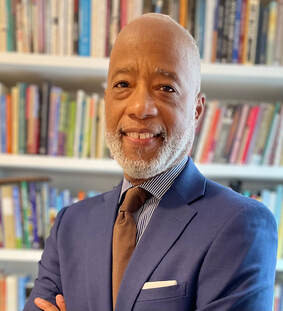
In Memorium. Our friend and colleague Dr. Norm Anderson recently passed away. We recognize his life and contributions to the Institute here.
Dr. Anderson is currently Assistant Vice President for Research and Academic Affairs, and Professor of Social Work at Florida State University (FSU). At FSU he is also the founding Director of the Faculty Leadership Development Program. Before joining FSU, Anderson served for 13 years as Chief Executive Officer (CEO) American Psychological Association (APA) and was the second longest serving (and first African American) CEO in the 130+ year history of APA. Prior to joining APA, Anderson was the founding Director of the NIH Office of Behavioral and Social Sciences Research (OBSSR). In addition to his formal leadership roles, Anderson served as a tenured associate professor at Duke University School of Medicine and as a professor at the Harvard School of Public Health. He is well-known for his research and writing on racial, ethnic, and economic health inequities. Anderson is currently a Senior Editor of the Oxford Research Encyclopedia of Global Public Health covering health equity topics.
Anderson is a Fellow of the American Association for the Advancement of Science, the American Psychological Association, the Association for Psychological Science, the Academy of Behavioral Medicine Research, and the Society of Behavioral Medicine. He is a Past-President of the Society of Behavioral Medicine. He currently serves on the Board of Directors of the Academy of Science, Engineering, and Medicine of Florida, and the Board of Directors of Prosocial World. Anderson is an elected member of the National Academy of Medicine and has been inducted into the National Black College Alumni Hall of Fame.
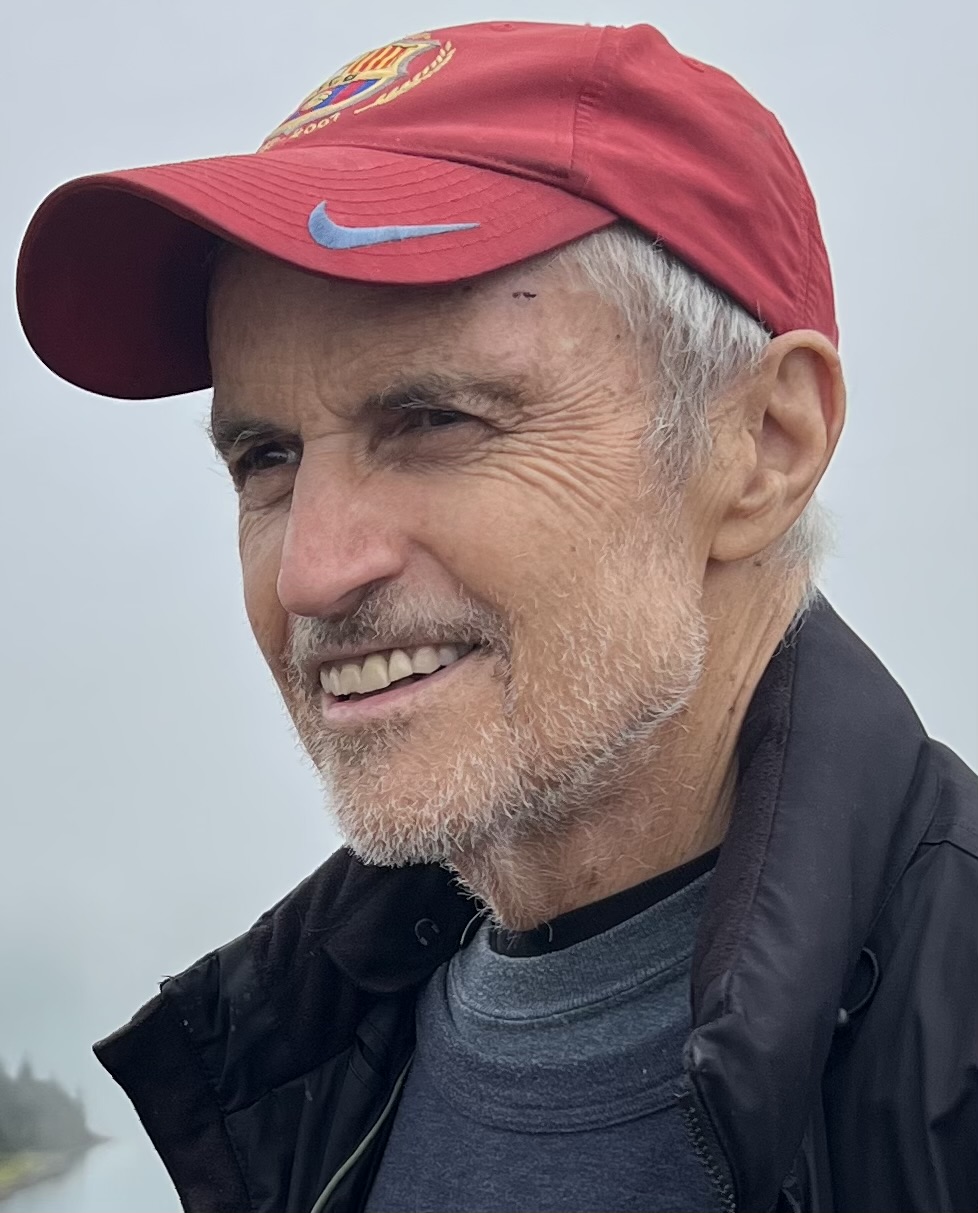
Gerald W. Piaget, Ph.D. is a clinical psychologist and marital counselor licensed in CA. He is an Emeritus Clinical Associate Professor (Adjunct) in the Department of Psychiatry and Behavioral Sciences, Stanford University School of Medicine. He is co-founder and past president of IAHB/ IBH. He received his doctorate from the University of Massachusetts (Amherst) where, among other things, he worked with Seymour Epstein, Ph.D. on anxiety research projects comparing how experienced and novice parachutists handled anxiety. In the process he also earned a Jumpmaster license from the USPA! He interned at the Eastern Pennsylvania Psychiatric Institute (EPPI), where he worked with Arnold Lazarus, Ph.D., Joseph Wolpe, M.D., Albert Ellis, Ph.D., and other seminal contributors to the evolving behavioral and cognitive-behavioral movements.
Escaping to the West coast in 1968, he opened a private practice while working part-time for Santa Clara County Mental Health and Behavior Change, Inc., an organization he co-founded with John Marquis, Ph.D. and others. In 1974 he co-founded Assertive Communication Institute (ACI) and began offering business consultation, primarily in the Silicon Valley area. In 1975 he joined the Adjunct Clinical Faculty at Stanford. In 1977, he and colleagues founded a nonprofit organization (the “Institute for the Advancement of Human Behavior,” or IAHB) that produced large clinical conferences and follow-up workshops. He became President of IAHB in 1981, a position in which he served until 2022. In 1989 he, Michael Freeman, MD, and Joan Piaget, M.S. formed a wholly-owned IAHB subsidiary (the “Institute for Better Health” or IBH) to address the needs of then-emerging behavioral healthcare companies. They also founded a for-profit company, Centralink, to offer services that did not fall under the nonprofit's mission statement.
In addition to various manuals and articles, he has authored three books, most notably Control Freaks! How to Keep Them from Ruining your Life. Author-wise, he is actually second-most proud of an unpublished manuscript, Paradoxical Strategies in Psychotherapy that evolved into a presentation/workshop he gave around the country for several years. Working closely with Ms. Piaget, he also “authored” two sons who managed to grow up and are now working in the San Francisco area.
Anderson is a Fellow of the American Association for the Advancement of Science, the American Psychological Association, the Association for Psychological Science, the Academy of Behavioral Medicine Research, and the Society of Behavioral Medicine. He is a Past-President of the Society of Behavioral Medicine. He currently serves on the Board of Directors of the Academy of Science, Engineering, and Medicine of Florida, and the Board of Directors of Prosocial World. Anderson is an elected member of the National Academy of Medicine and has been inducted into the National Black College Alumni Hall of Fame.
